In Australia, cider is a very popular drink. If you don’t like beer (like me), a pint of cider is often your drink of choice on a hot summers day down at the pub with your friends. The craft beer and cider industry in Australia is big, likely due to our British roots.

So when I first moved to Paris just over three years ago and tried to order a cidre in a bistro or a bar, I was disappointed. Usually they wouldn’t have any, or if they did, there would only be one option and it would be in a bottle, not on tap like back in Australia.
I discovered that French cider is quite different to its Australian or British counterparts. Traditional French cidre usually comes from Normandy or Brittany, and the French often drink it while eating crêpes or galettes. You can get brut or doux, but even brut is a bit sweeter than what I’m used to. And doux is often only 2-3% alcohol, while in Australia cider is usually between 4.5-6%.
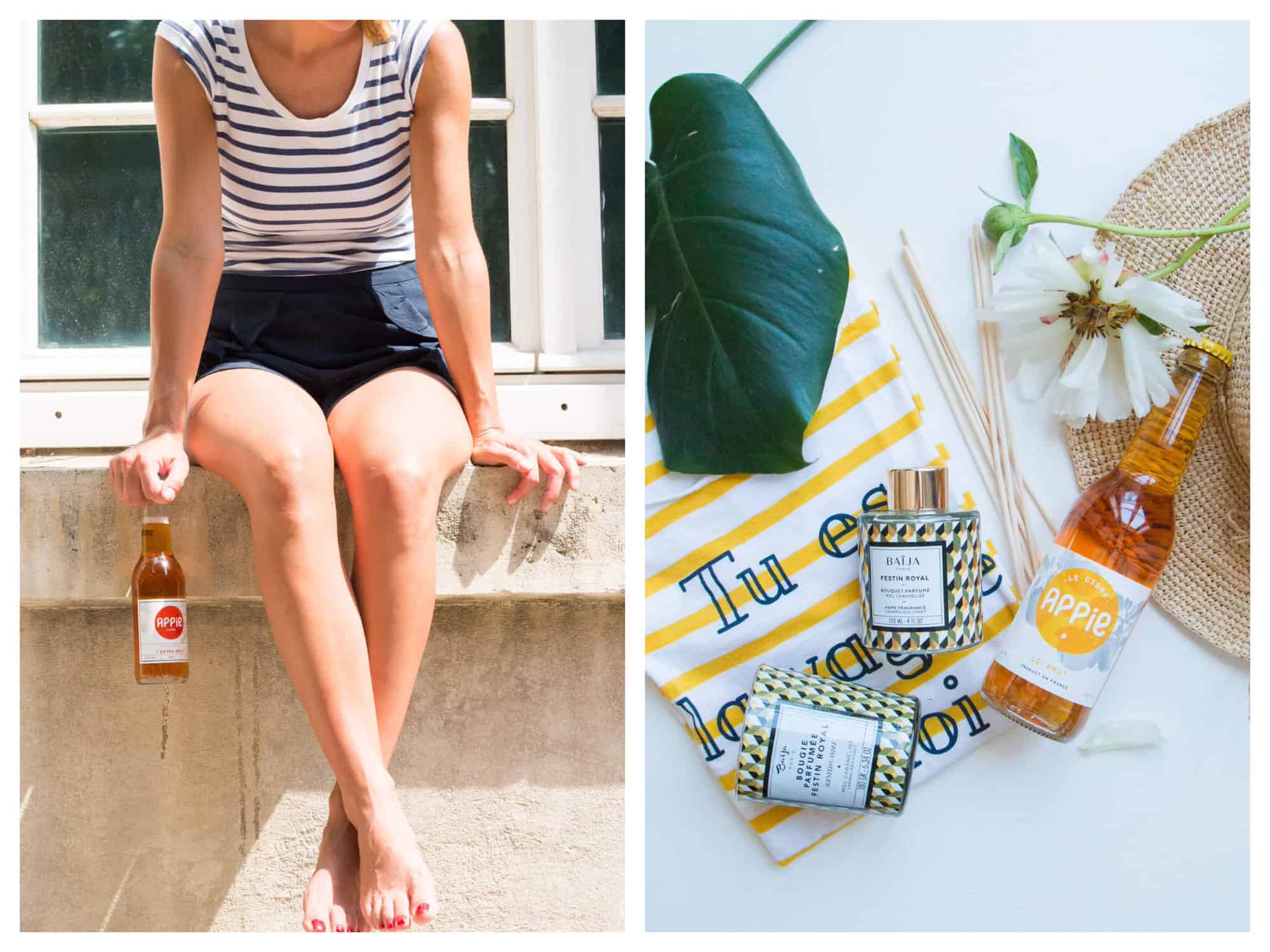
France has made some headway in the craft beer industry, but it still has a lot of catching up to do, and even more so when it comes to cider. But over the years, I’ve discovered some great French cider brands that are leading the way:
Maison Sassy
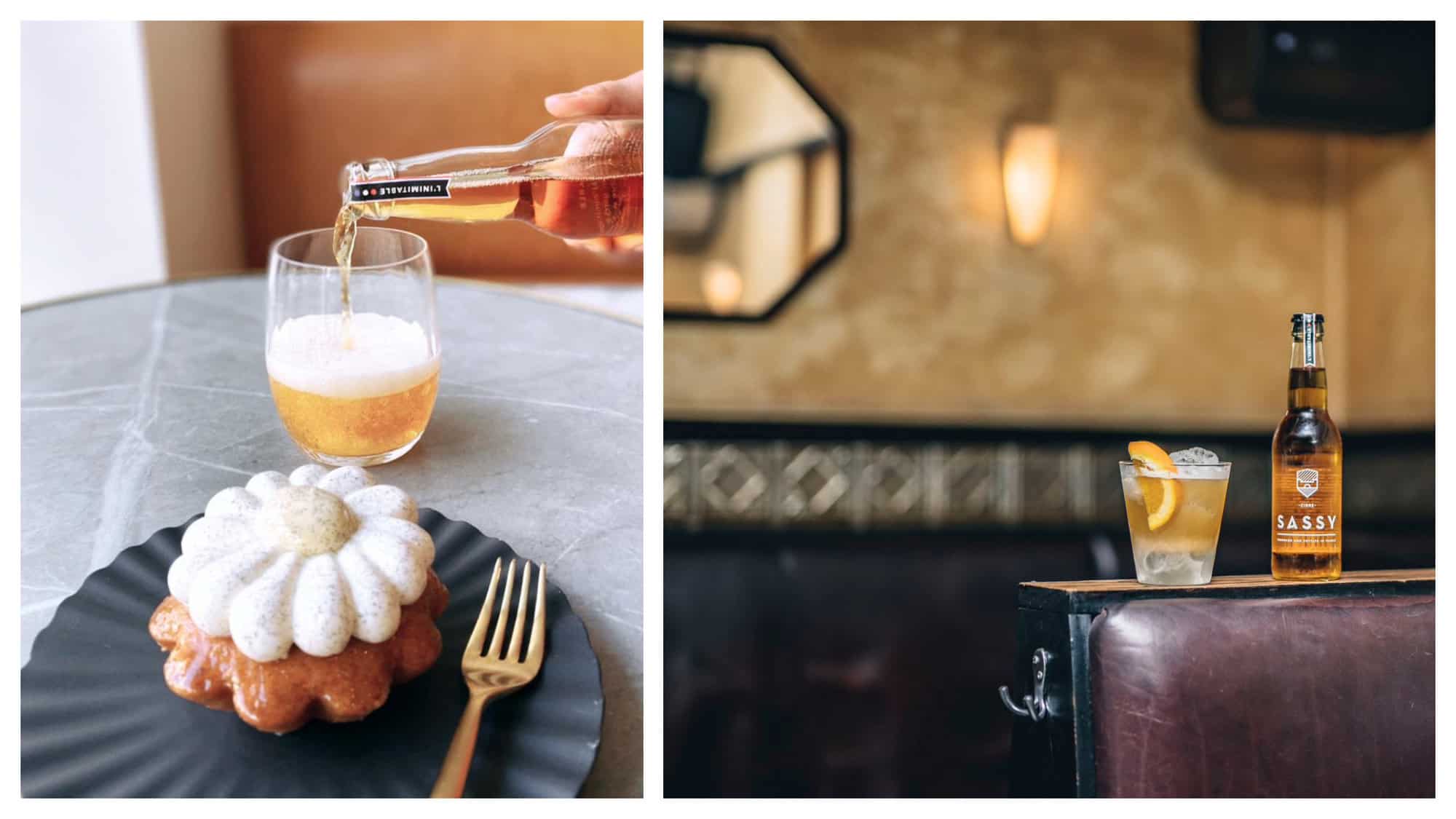
Maison Sassy claims to be the new, modern face of traditional Normandy cider. They are based at the Château de Sassy in Normandy, which has preserved the tradition of cider-making since 1852, thanks to the co-founder’s family. Their vision is to revolutionize the perception of artisanal cider.
The founders collaborated with a renowned cellar master to rework traditional recipes. The result is an authentic and high-quality handcrafted cider. Their cider is free from additives and concentrates, made from 100% natural juice, and is 100% locally sourced and produced.

Appie
Launched in 2015, Appie wanted to put cider back in the spotlight by creating a drink we can enjoy on a terrasse at apéro time. They aimed to create a well-produced, 100% natural cider made from French fruits. They have le brut, le brut au miel (with honey), l’extra brut, le poiré, le poiré gingembre (pear with ginger), and le rosé. For those that want a little buzz with their cider, their l’extra brut is 6.5% alcohol.

Fils de Pomme
Co-founder Théo is the heir to the family cider-making tradition dating back to the end of the 19th century. His partner, Valentin, spent summers in Brittany with his grandparents, who introduced him to cider-making and taught him to taste the family production. Together, they aspire to create new ciders that both revive and respect the French cider tradition.
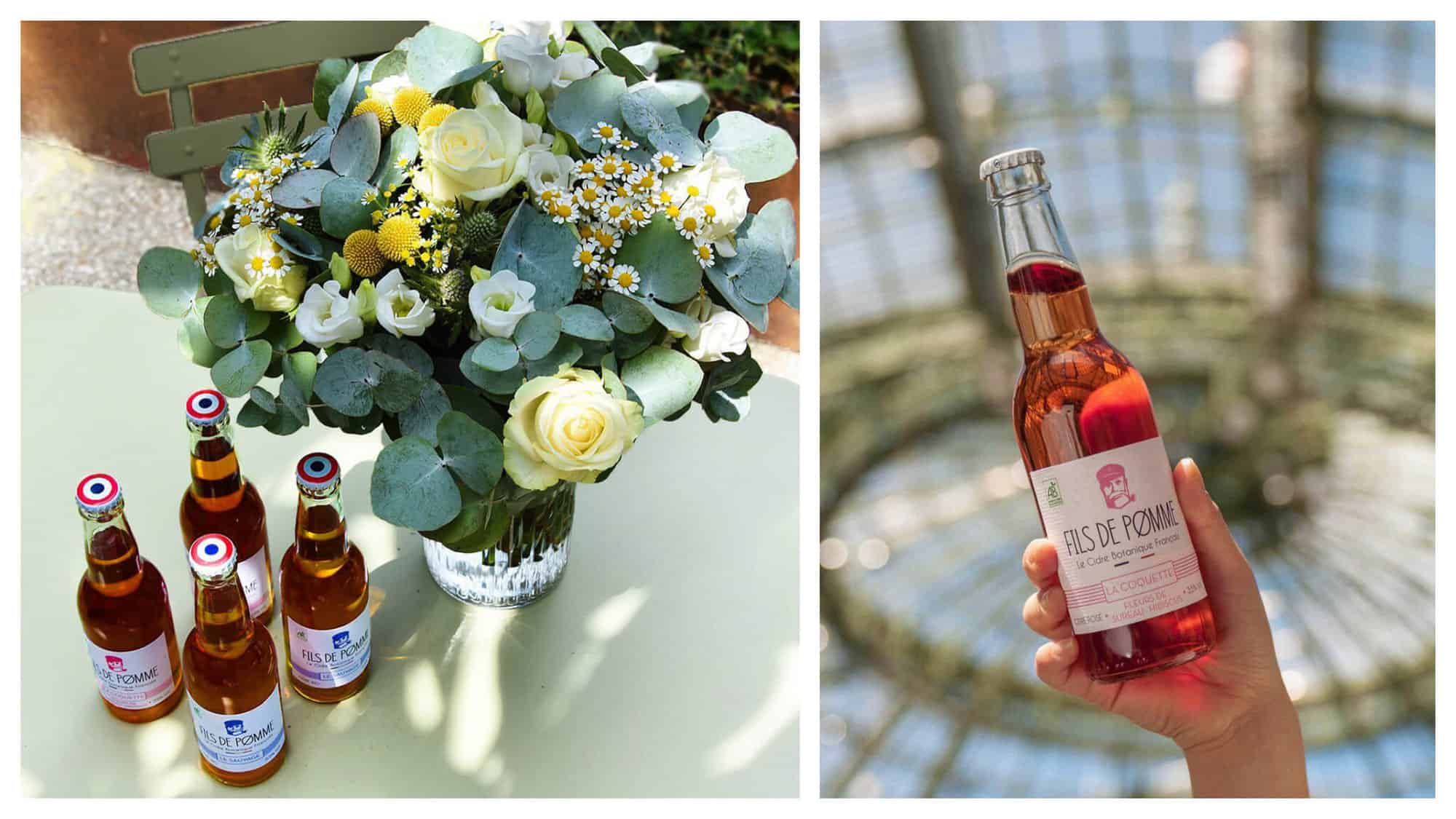
Fils de Pomme are ethically minded. Their cider is 100% certified organic and natural, made from fruit 100% grown in France and as close as possible to the cider house. Their cider contains no added sugar, preservatives, or chemicals. Their waste, such as apple pomace, is 100% recycled and used to feed cattle in the region. They also deliver using ecological vehicles.
Le Coq Toqué!
Le Coq Toqué! creates 100% organic cider from natural ingredients that is 100% produced in France. They are based on a farm that has been producing cider for five generations, the Terres d’Orval orchard in Normandy. They also choose sustainable agriculture: Their orchard is untreated, they prune their trees manually, and they collect fruit from the ground when ripe. Options include cidre du patron, cidre bergamote, and poiré guinguette.
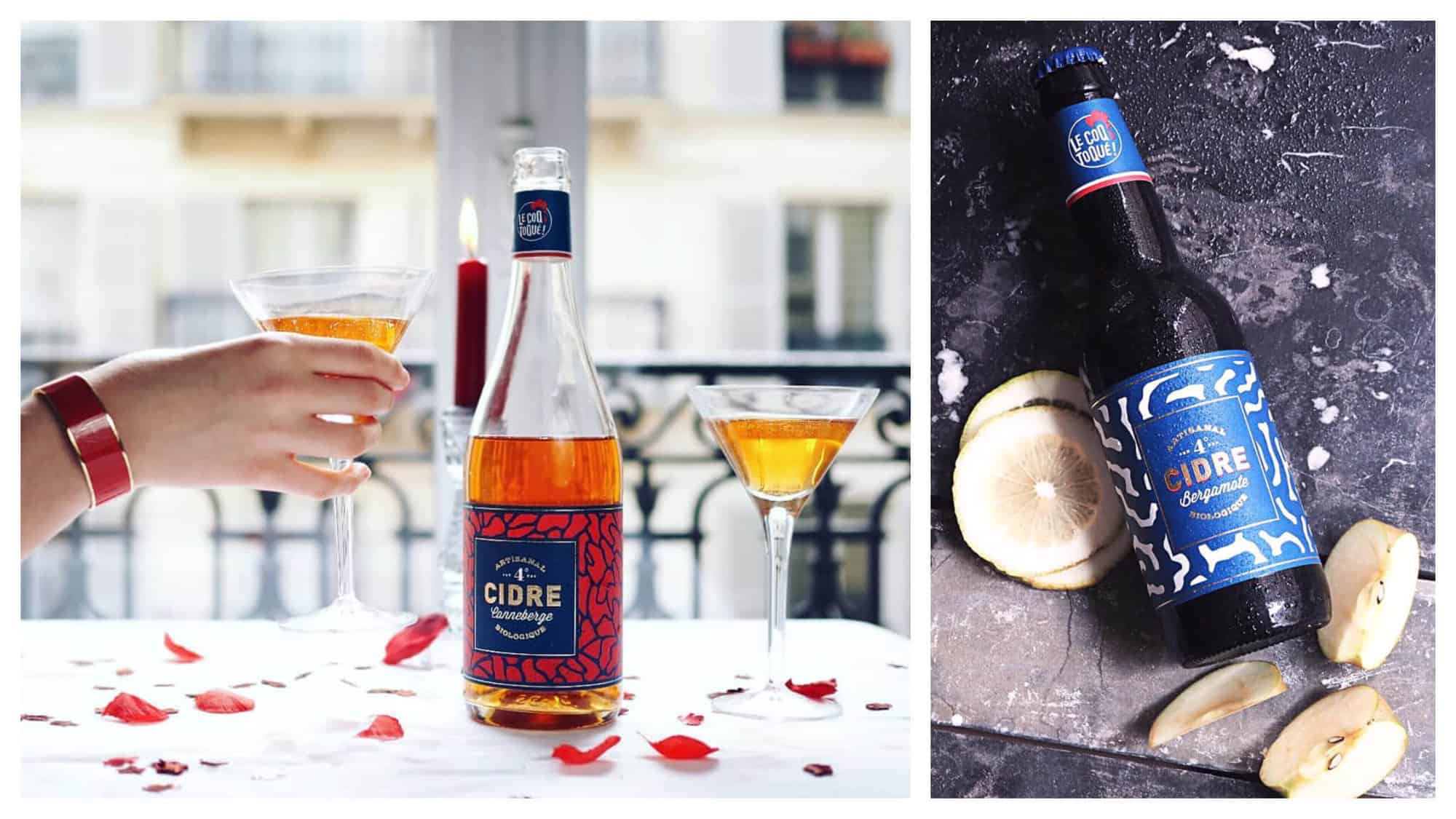
If you’re looking for something a little more traditional, La Mère Poulard, who’s famous for her sablés, also makes a great Normandy cider.
Related Links
- If you prefer beer, check out Paris’ best craft beer shops.
- For wine lovers, discover our favorite Paris wine bars.
- Read about the difference between French and English cider.
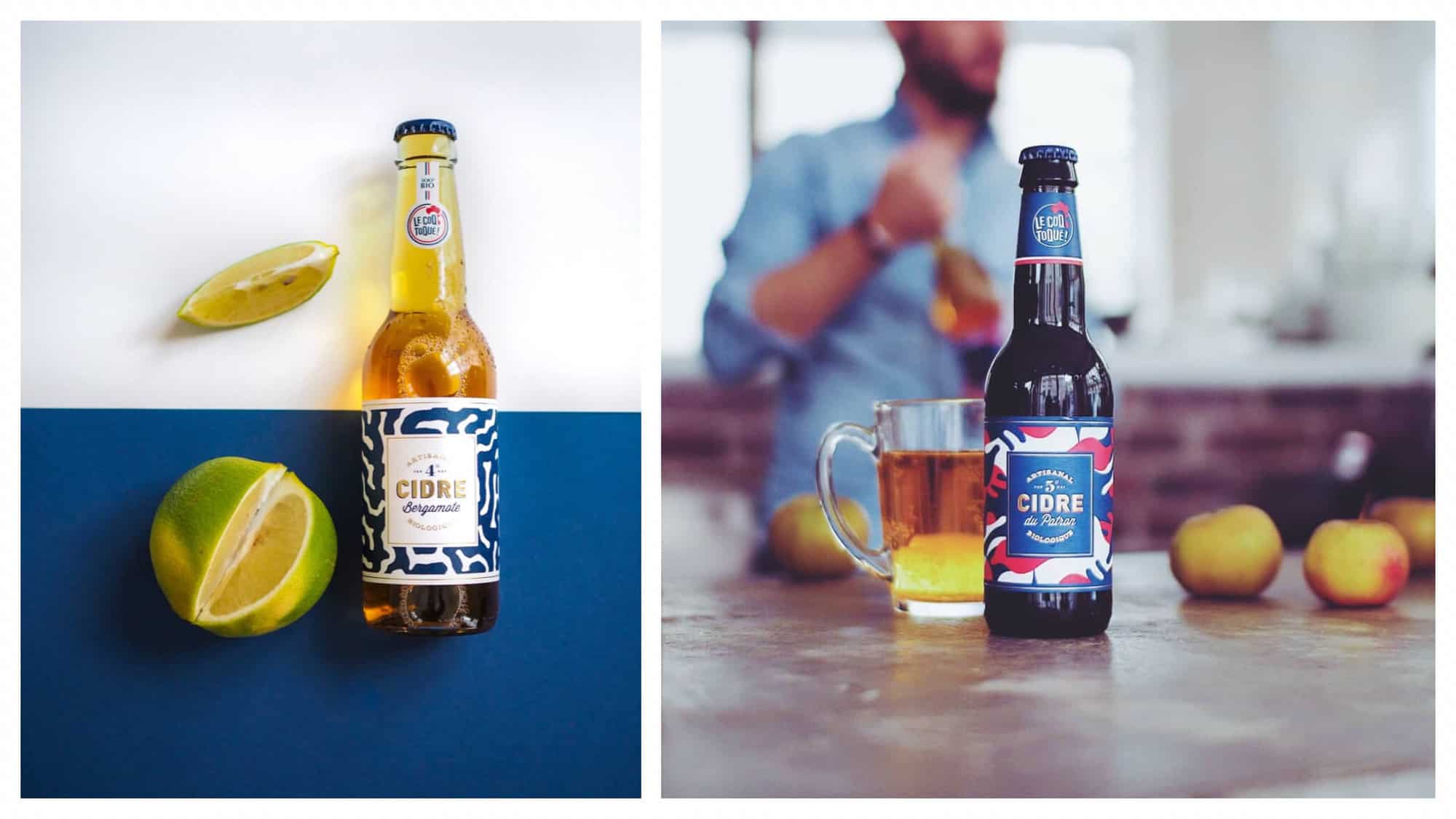
Written by Ali Postma for HiP Paris. Looking to travel? Check out Haven In for a fabulous vacation rental in Paris, France or Italy. Looking to rent long-term or buy in France or Italy? Ask us! We can connect you to our trusted providers for amazing service and rates or click here. Looking to bring France home to you or to learn online or in person (when possible)? Check out new marketplace shop and experiences.

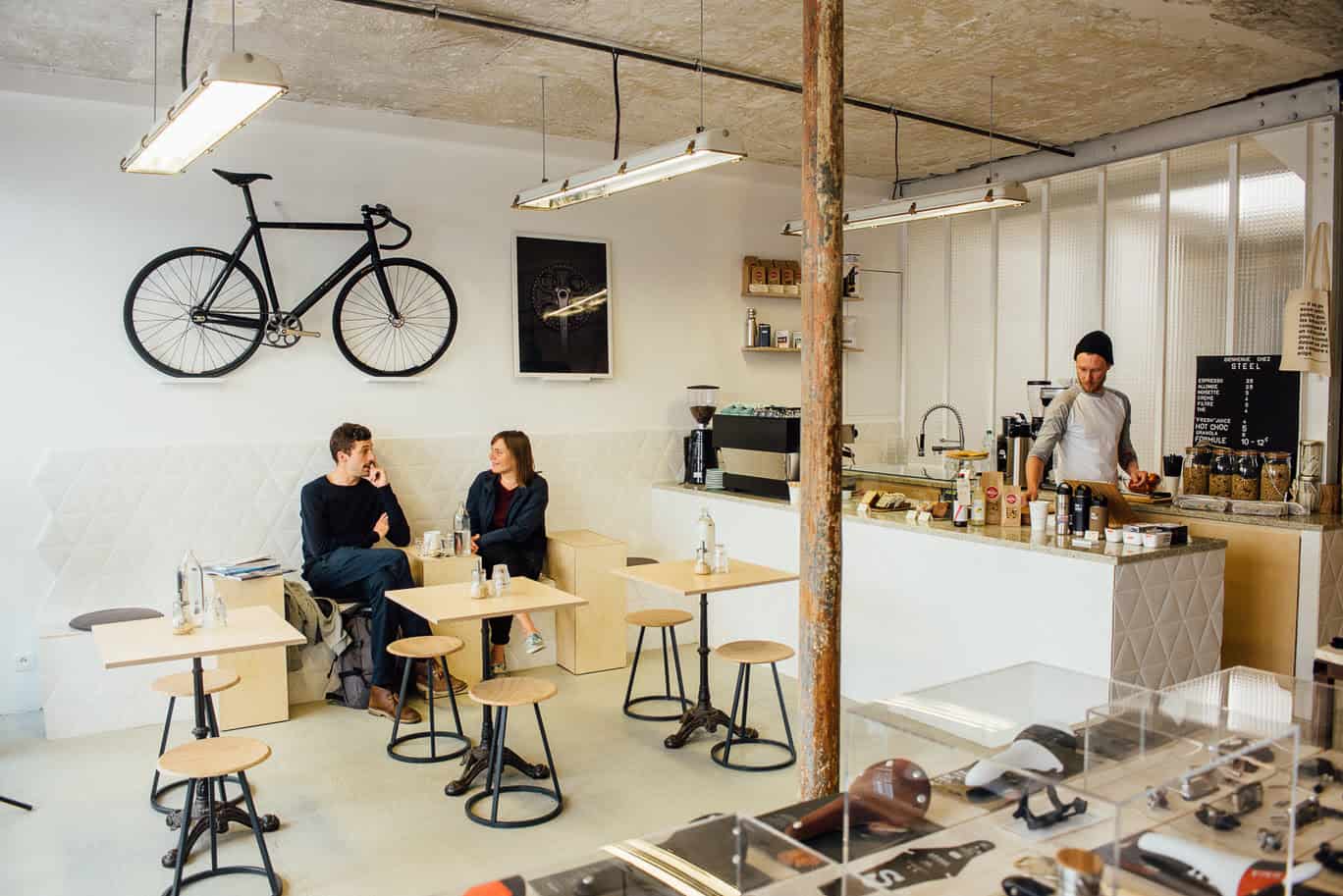

RELATED ARTICLES
Father’s Day Gifts for Francophiles
by
Zoe Adams
You Can Still Win a Week in Paris
by
Erica Berman
The Best Croissants in Paris 2025
by
Alessia Armenise
A Local’s Guide to the 3rd Arrondissement: Life in the Haut-Marais
by
Zoe Adams
All About the Baguette: The Ten Best in Paris
by
HiP Paris
Rue de Lévis: A Market Street in Paris’s 17th Arrondissement
by
Yvonne Hazelton
The Top Women Chefs Defining Paris’s New Dining Scene
by
Lily Heise
Cocoricains: An American Bistrot with French Flair in Paris’s 2nd Arrondissement
by
Dilyn Odoardi
Valentine’s Day Gift Guide For Francophiles
by
Mia Baccei
Our Favorite Stinky French Cheese: What To Buy, Tips & Where To Shop
by
Casey Hatfield-Chiotti
La Chandeleur: 8 Spots for the Best Crêpes in Paris
by
Ali Postma
Where to Eat in St Germain Paris, According to A Food Tour Guide
by
Rachel Naismith
Where to Find the Best Comfort Foods in Paris
by
Neil Kreeger
Healthy French Recipes for Winter
by
HiP Paris
Where to Eat in Paris During the Holidays – Christmas and New Year’s
by
Lily Heise
How to Have a French Holiday Meal at Home
by
HiP Paris
The Ultimate Francophile Gift Guide
by
Maikka Piquemal
30 Books To Transport You To France
by
HiP Paris
Christmas 2024 at Galeries Lafayette – Get “LIT” this Holiday Season
by
Kathryn Kinley
Where to Go For Thanksgiving Dinner in Paris
by
Lily Heise